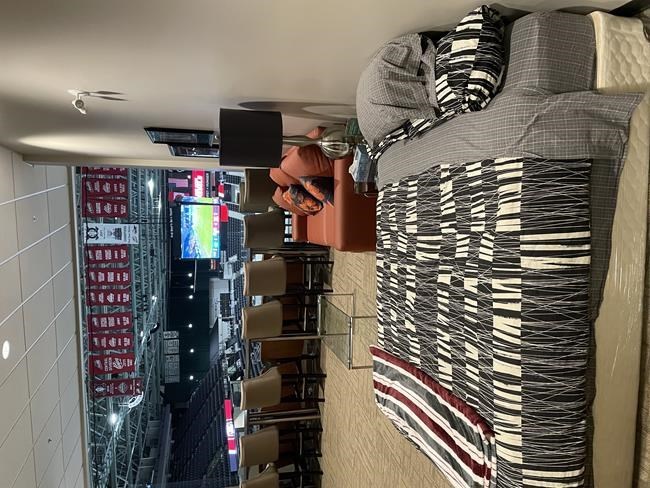The Red Deer Rebels' official Twitter bio is a taut four-word entry that sums up the team's current situation.
"Livin' at the rink" is usually reserved for hockey cliche. For players on the Western Hockey League team, it's their indefinite reality.
The Rebels are living in modified suites at their home arena — the Westerner Park Centrium — as they prepare for a shortened 24-game regular season beginning Friday against Medicine Hat.
Living arrangements for the country's major junior players are as scrambled as the pandemic-affected schedule. It's all part of a no-size-fits-all approach that's required as leagues and teams try to get some semblance of a season completed.
Other clubs in the five-team Alberta Division have been forced to make unusual residence arrangements too.
With the NHL's Flames and AHL's Stockton Heat sharing the Scotiabank Saddledome, the Calgary Hitmen will play at the Tsuut’ina Nation’s Seven Chiefs Sportsplex and stay at the nearby Grey Eagle resort.
Hitmen general manager Jeff Chynoweth said his club was facing a unique situation and came up with a different plan in an effort to mitigate COVID-19 risk.
"Each market is separate and each market is different," he said. "Some can make (a creative approach) work and some cannot."
The Lethbridge Hurricanes are living in an apartment building near their home rink. The Tigers and Edmonton Oil Kings are using a traditional billet system.
The Hitmen were given clearance to resume on-ice practices last Friday. All members of the team were tested upon arrival and again after a quarantine period, and there were no positive tests, the WHL said.
The other Alberta Division teams were tested and cleared to start practising a week earlier.
Seven teams in Manitoba and Saskatchewan will begin play in an East Division hub in Regina starting March 12. All teams will be housed in student accommodation at the University of Regina and Luther College, a WHL spokesman said.
The five American-based WHL teams will play in a U.S. Division starting March 18. Accommodation arrangements for those clubs were still being finalized.
The league's B.C. Division has yet to receive permission from health authorities to resume play.
Meanwhile, the Quebec Major Junior Hockey League is playing in hubs in Quebec and team arenas in Nova Scotia and Prince Edward Island, but its three New Brunswick teams remain sidelined.
Hotels are used for hub events in Quebec while Atlantic-based teams are using family billets, a QMJHL spokesman said.
The third league under the Canadian Hockey League umbrella — the Ontario Hockey League — has yet to begin play this season.
The Rebels' setup might be the most creative of the bunch.
Players eat, study, train and relax inside the 7,000-seat arena. The venue's big screen is even being used to watch NHL games and movies, with players recently taking in a viewing of "Creed 2."
"We just felt this was a better solution for everyone involved," said Rebels senior vice-president Merrick Sutter. "It's not perfect. There's little drawbacks here and there.
"But I would say the ability to keep them in a confined space gives them a little bit more freedom to socialize and have it feel a little bit normal."
This report by The Canadian Press was first published Feb. 19, 2021.
Follow @GregoryStrongCP on Twitter.
Gregory Strong, The Canadian Press


